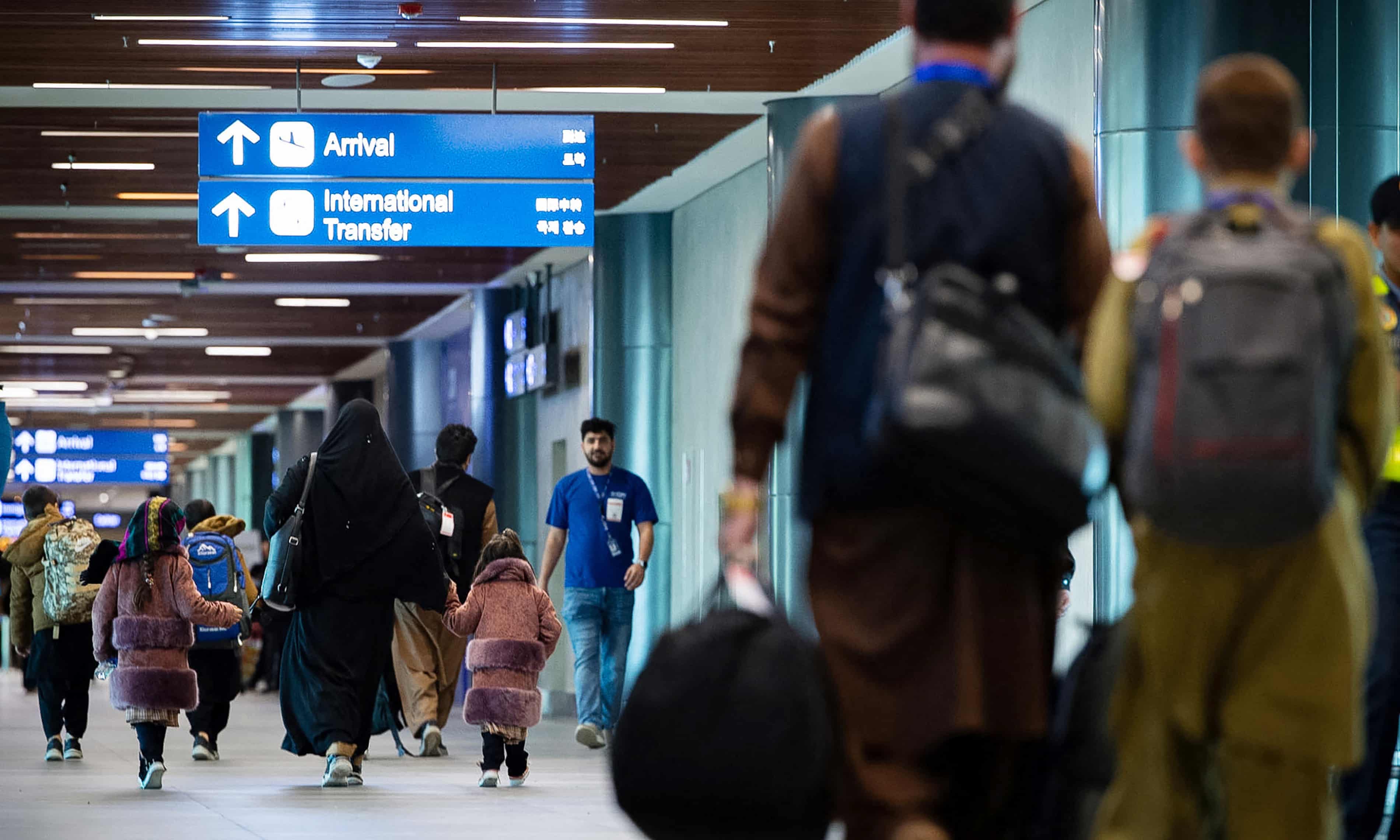Constitutional Violation: Will Trump’s Order to End Birthright Citizenship Be Enforced?

“In 1924, Congress authorised citizenship for all Native Americans born in the United States.”
A series of executive orders and directives were issued by U.S. President Donald Trump, as he sought to put his stamp on his second term, which began on January 20.
Subsequently, the new President has rescinded dozens of actions by former President Joe Biden, but there are limits on what Trump can do legally, as many of the orders are expected to be challenged in court.
The most prominent of these decisions is Trump signing an executive order ending the right to obtain US citizenship by birth from illegal immigrants, a right guaranteed by the Constitution and affirmed by the Supreme Court more than 125 years ago.
In response, immigrant rights and civil rights advocates filed a lawsuit against the Trump administration, describing Trump’s order as unconstitutional.
Trump had pledged to abolish birthright citizenship when he first ran for president in 2015, and raised the issue again in 2018, but he never actually issued an executive order.
At the time, House Speaker Paul Ryan, also a Republican, rejected the idea, saying that “you can't do something like this through an executive order.”
Legal Status
The new US President Donald Trump recently signed an executive order revoking the granting of citizenship to children born in the United States if their parents are illegal immigrants or are in the United States on a temporary visa, such as a tourist, student or work visa.
The decision overturns precedents where any child born in the United States automatically obtained US citizenship regardless of the legal status of their parents or the type of visa they had.
Under the new order, federal agencies will be prohibited from granting citizenship to people in the aforementioned categories starting February 19.
A move of this kind would change the lives of many, and for this reason it caused a great uproar among civil society institutions and human rights groups, who said that the decision is unconstitutional, and that Trump cannot change the constitution with a single signature.
In an attempt to challenge his executive order, these organizations, along with 24 Democratic-led states and cities, have filed lawsuits against Trump, marking the beginning of what promises to be a long legal battle over the new administration’s immigration policies, ABC News reported.
The lawsuit, filed by 18 Democratic attorneys general, accuses Trump of seeking to overturn a long-standing and well-established constitutional principle with an executive order.
“The President has no authority to rewrite or repeal a constitutional amendment or a law that has been validly passed, nor may he, under any other source of law, restrict who may acquire US citizenship at birth,” the lawsuit stated.
Four other states later filed a similar suit, asking a federal court to block or enforce the executive order.
According to the lawsuit filed by the states, At least 150,000 children born to two parents without legal status would be denied citizenship by Trump's order to end birthright citizenship.
There are about 4.4 million US-born children under 18 who live with an undocumented parent, according to the Pew Research Center.

Constitutional Violation
Critics of Trump's decision to ban birthright citizenship say the right is constitutionally guaranteed by the 14th Amendment, which was passed in 1898.
The 14th Amendment says that “all persons born or naturalized in the United States, and subject to the jurisdiction thereof, are citizens of the United States”.
The amendment guarantees citizenship to anyone born on U.S. soil regardless of their parents’ legal status, with some exceptions, such as the children of foreign diplomats.
“Presidents can’t overrule the Constitution and centuries of precedent with a stroke of a pen,” New Jersey Democratic Attorney General Matt Platkin said.
“I'm leading a coalition of 18 states in suing to stop Trump's unlawful order banning birthright citizenship,” he added.
“The 14th Amendment is clear: any person born in the United States is a citizen of our nation,” Connecticut Democratic Attorney General William Tong said.
“President Trump cannot ignore the 14th Amendment, or any part of our Constitution,” New York Democratic Attorney General Letitia James said.
Trump’s allies are fully aware that any move to toughen their approach is likely to face a legal challenge and eventually reach the Supreme Court.
According to experts, there are signs that the judiciary may be divided on this issue, but the courts are unlikely to consider the Trump administration’s arguments on interpreting the Constitution without a new law from Congress.
CNN reported that this legal battle will be inevitable, but considered that convincing the Supreme Court to accept such a challenge is not guaranteed.
It expected the court to be less inclined to consider the case if there was no disagreement among the chambers about the meaning of birthright citizenship.
Legal experts remain confident that birthright citizenship will survive even with a right-wing Supreme Court that has shown a willingness to overturn old rulings on other issues, such as abortion rights.

Legal Loophole
However, President Trump and his team reject all the arguments being made, accusing the radical left of obstructing the Republican president’s agenda.
White House Deputy Press Secretary Harrison Fields said Washington was ready to face the states in court.
“Radical Leftists can either choose to swim against the tide and reject the overwhelming will of the people, or they can get on board and work with President Trump,” Fields said.
Trump’s supporters point out that the 14th Amendment has not always granted citizenship to those born here, as Congress formally passed the right in 1924, years after the Supreme Court ruled in an 1898 case that established the right.
Trump's allies have argued that the 14th Amendment has been misinterpreted and does not apply to children born in the United States to undocumented parents.
Some immigration hardliners have argued that the children of undocumented immigrants are not subject to U.S. jurisdiction and should therefore not be considered citizens under the Constitution.

According to CNN, outdated Supreme Court rulings also pose a major obstacle to the new Trump administration.
In 1898, the Supreme Court upheld the 14th Amendment's application to people born in the United States to non-U.S. citizens, in the case of Wong Kim Ark, a man born to Chinese parents in San Francisco who was denied entry to the United States after a visit to China in 1895.
Wong fought it all the way to the Supreme Court, which ruled on March 28, 1898, that the Fourteenth Amendment guaranteed U.S. citizenship to Wong and anyone else born in the United States.
A further case in 1982 made clear that the amendment also applied to children born to illegal immigrants.
Sources
- Inside the Trump team’s plans to try to end birthright citizenship
- Judge to consider challenge to Trump’s executive order ending birthright citizenship
- Trump ‘scraps’ birthright citizenship: Who will it affect?
- 'Litigation is a certainty': Trump's call to end birthright citizenship would face a mountain of opposition











